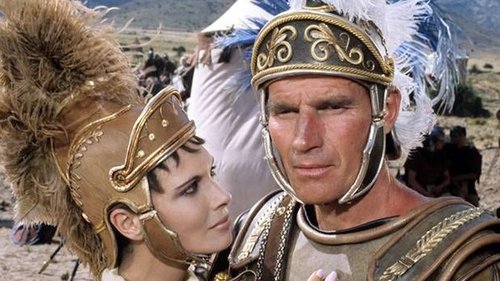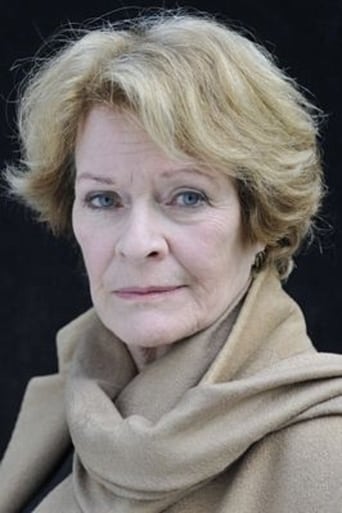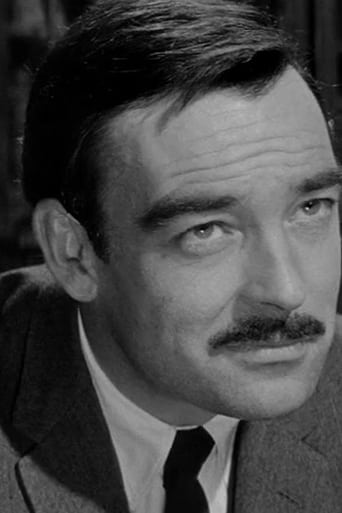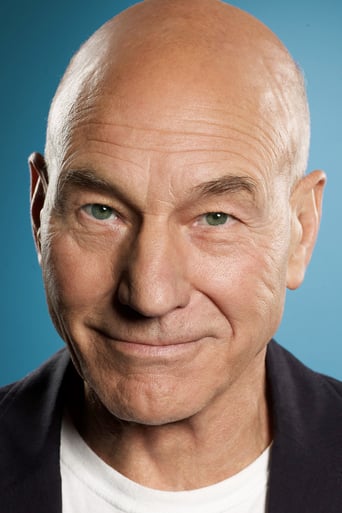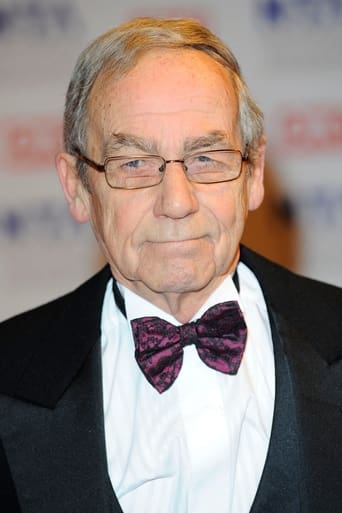Stevecorp
Don't listen to the negative reviews
Mandeep Tyson
The acting in this movie is really good.
Zlatica
One of the worst ways to make a cult movie is to set out to make a cult movie.
Juana
what a terribly boring film. I'm sorry but this is absolutely not deserving of best picture and will be forgotten quickly. Entertaining and engaging cinema? No. Nothing performances with flat faces and mistaking silence for subtlety.
john-lauritsen
First the good: this production is traditional: set in Ancient Rome, with appropriate costumes. Otherwise, it stank. Almost none of the actors could deliver a Shakespeare line. In Anthony and Cleopatra, some lines are rhymes, some are in blank pentameter, and some are in prose. Here it hardly mattered, since the director and actors had no respect for words. The two leads were the worst offenders. Cleopatra (Janet Suzman) was light-weight, shrill, cheap -- far from regal. She would howl out a word or two from a line, letting all the other words fall by the wayside. Always she was mugging for the camera, with limited facial expressions to mug with. She seemed spiteful, silly, and quite frankly unattractive. Anthony was almost as bad, in different ways. He tried to invest almost every line with gut-wrenching emotion -- bawling out line after line, that should simply have been spoken. With lines blurted out, it was hard to understand what was happening, except that the actors were terribly emotional about something or other. Whenever someone told a joke, and there is a lot of humor in A&P, the actors would laugh and laugh. Not funny. It's we, the audience, who ought to do the laughing. None of the poetry came through. The famous description of Cleopatra by Enobarbus ("Age cannot wither her, nor custom stale Her infinite variety....") got lost in the noise. There are no subtitles -- which might have helped. Than again, it might have been distracting to see the lines the actors were supposed to be speaking, in contract to what they were actually yelling out or whispering.
GusF
Based on Trevor Nunn's acclaimed 1972 Royal Shakespeare Company production, this is an excellent adaptation of the Bard's tale of love, duty, war, honour and ambition. The play nicely explores the contrasting values of Ptolemaic Egypt and the Roman Republic, both of which were approaching their final days during the events portrayed for different but related reasons. As with most Shakespearean adaptations, there are some cuts here and there, the most significant being the omission of Sextus Pompey. While many of the references to him are retained as it would be difficult to move the plot along if he were not even mentioned, I felt that it was a mistake to excise Pompey's appearances entirely. He is very conspicuous by his absence, not least because it adversely effects the film's structure in one instance: Mark Antony and Octavius go from being reluctant allies to being at war with each other very suddenly and it is a little jarring. The production is very much a filmed stage play as the sets are minimalist to basically non- existent. However, the director Jon Scoffield handles the material very well and I was surprised to discover that this was the only time that he ever directed Shakespeare for the screen.The film stars Richard Johnson in an excellent performance as Mark Antony, a member of the Second Triumvirate of the Roman Republic who spends most of his time in Alexandria with his beloved Cleopatra. In the wake of Julius Caesar's assassination, she has allied herself with Mark Antony against Caesar's great-nephew and adoptive son Octavius. While it began as a political arrangement, it has transformed into a passionate love affair by the beginning of the play. Antony is so bewitched by Cleopatra that he has come to neglect his onerous duties in Rome and seems almost disinterested in the fact that his wife Fulvia and brother Lucius are waging a revolt against his "official" ally Octavius. In a great moment of self- reflection early in the play, he fears that he is losing himself in dotage but seldom displays the same level of perception afterwards. Antony is not always a sympathetic character but he is always a compelling one and Johnson does a fantastic job at conveying his deeply felt inner conflict between his love for Cleopatra and his responsibilities to Rome. Throughout much of the play, Antony seems desperate to convince himself that he is a honourable man, especially when his often ill-advised actions suggest otherwise. He dies with some degree of contentment, secure in the knowledge that he is "a Roman by a Roman valiantly vanquished."Janet Suzman is suitably theatrical as the Drama Queen of the Nile. Her performance is generally very good but she does have a tendency to go pretty far over the top whenever she has to shout, with Antony's death scene being the best / worst example of this. I imagine that this approach worked better on stage than it does on screen. Cleopatra is a fascinating and complex character. She is self-obsessed, childish, arrogant, quick to anger and likes to indulge in histrionics for the benefit of her audience. Conversely, she is a strong, powerful and fiercely intelligent woman who knows exactly what she wants and is not afraid to get it. At one point, she compares ensnaring Antony to catching a fish. However, she seems to view him not as a prize that she has won but as the love of her life, even if her actions occasionally indicate a lack of loyalty towards him. Her love for him is not quite as self-evidently all- consuming as is his love for her but there is nevertheless a sense that we are witnessing a great love affair for the ages reach its tragic and inevitable conclusion. In one of the play's most memorable moments, Enobarbus claims that "age cannot wither her nor custom stale her infinite variety," which is indicative of the fact that she is not afraid to use her beauty and sexuality to achieve her aims. This leads Octavius to describe her as a "whore" and fuels his desire to lead her through Rome as his prisoner.In one of his first major television appearances, Patrick Stewart is wonderful as Enobarbus, Antony's oldest friend and brother-in-arms throughout many a campaign. In many respects, Enobarbus is the most insightful character in the play as, for instance, he is the first to realise that Antony will return to Cleopatra's side in spite of the fact that he has agreed to marry Octavius' sister Octavia in order to solidify their alliance against the rebellious Pompey. Over time, he loses his faith in Antony and with good reason as his obsession with Cleopatra has come to cloud his judgement, most notably at the crucial Battle of Actium when he makes the grave strategic error of following her when she and her sixty ships retreat. Enobarbus defects to Octavius' forces but he is soon overcome with guilt and regret and dies of a broken heart at having betrayed the man whom he loved like a brother. The always excellent Corin Redgrave is rather smarmy as the mostly unsympathetic antagonist Octavius. I say "mostly" as many of his criticisms of Antony's neglect of his duties in the early part of the play were perfectly justified. That said, he is a ruthless man full of vaulting ambition who proves to be a powerful enemy to the title characters. The film also featured strong performances in roles of varying size from Rosemary McHale as Charmian, Philip Locke as Agrippa, Raymond Westwell as Lepidus, Tim Pigott-Smith as Proculeius, Ben Kingsley as Thidius, Joseph Marcell as Eros, W. Morgan Sheppard as Scarus and Darien Angadi as Alexas, a role which he would reprise in the 1981 BBC version.Overall, this is an extremely effective adaptation of Shakespeare's tragedy.
Howard Schumann
The Royal Shakespeare Company's 1974 production of William Shakespeare's Antony and Cleopatra, though a slightly truncated version, stands out among Shakespeare interpretations on film for the quality of the direction and the convincing nature of the performances that bring the main protagonists to life as three-dimensional human beings. Produced by Trevor Nunn and directed by Jon Scofield, the film stars Richard Johnson as the full-bearded Roman statesman/warrior Mark Antony and Janet Suzman as the voluptuous Egyptian Queen Cleopatra whose seductive allure may have changed world history. Though filmed entirely in a TV studio with extensive use of close-ups, the RSC interpretation is a riveting and involving experience, especially in contrast to the vastly inferior BBC performance of 1981 (I have not seen the Charlton Heston version recently reviewed here).There is no commonly accepted date of publication for Antony and Cleopatra, although most orthodox historians favor the date of 1607 since it was first entered with the Stationers' Register in 1608. There is, however, no compelling evidence to support that date. The play was not performed until at least 1607, perhaps because Cleopatra, the ruler of Egypt, bore striking resemblance to Queen Elizabeth I who died in 1603. Cleopatra, according to Dr. Ren Draya of Blackburn College calls Cleopatra "larger than life", a woman who cannot be explained but can only be felt. "She is a woman who stands for power but at the end gains lyricism and achieves nobility." Indeed, according to one reviewer, "Antony and Cleopatra is an unusual tragedy in that its protagonists start out flawed and gradually grow to heroic stature over the course of the play." According to Professor Michael Delahoyde of Washington State University, Cleopatra is suggestive of Queen Elizabeth 1, a "drama queen" who used her feminine wiles to gain political advantage. Perhaps that is the reason why the play was not performed until after the Queen's death, if indeed it had been written prior to that event. Shakespeare is mostly faithful to his source material, Plutarch's Lives, though he concentrates on the relationship between Anthony and Cleopatra and ignores some of the historical events reported by Plutarch. Antony alone is a tragic hero in the Plutarch chronicles but, in Shakespeare, Cleopatra is invested with an equally tragic character and soul-searching introspection, delivering eloquent soliloquies that can be compared to those of the most powerful Shakespearean male protagonists.Shakespeare makes no moral judgment at all on either of the main characters and allows the audience the freedom to become emotionally invested in the drama without being spoon fed the prevalent Puritan morality as in the high moral tone of Mary Sidney Herbert's free translation of Garnier's Antoine, published in 1590. The story revolves around Antony's decision to provide free rein to his impulses by courting the Queen of Egypt rather than carrying out his soldierly duties in Rome and the consequences of such. Antony, who was one of the ruling triumvirates of Rome along with Octavius known as Augustus Ceasar (Corin Redgrave) and Lepidus (Raymond Westwell), is summoned back to Rome where he makes a deal with Ceasar to marry his widowed sister Octavia (Mary Rutherford) and return to fight Rome's battles against the aggressive Pompey.Not willing to give up his Egyptian connection, however, Antony unleashes a civil war against Ceasar but is defeated at Actium after many of his trusted men including his close friend Enobarbus (Patrick Stewart) desert him and his reputation begins to decline sharply. Meanwhile, Cleopatra is torn between saving her life and protecting her children by supporting Caesar or remaining loyal to the defeated Antony. Both unfortunately meet a tragic end that can only be called "Shakespearean" in its noble grandeur.
bongoz
I was in high school when I saw this version of "Antony and Cleopatra" on the short-lived, occasional "ABC Theatre" on the US ABC television network. I had read Shakespeare in English Literature class, of course, and had even attended some local productions of Shakespeare plays, but seeing this production totally changed my view of the Bard, even theatre in general. This was the first time I ever watched a play and felt as if I was watching something real, viewing snippets of life in progress. The actors weren't mouthing lines and feigning emotions - they were real and they believed, and that made me believe as well.Perhaps the intervening years have affected my memory, dimming the details, but I cannot forget the awe I felt watching Patrick Stewart's Enobarbus. When I had read the play in school, Enobarbus was a minor character, and his speeches weren't important. Stewart's performance changed that. Now the role was central, and his descent from cheer to madness was a mirror of his world. Cleopatra's knowing chuckle as she spoke of her "salad days" was a lament as well a whimsey.At that age, I may have been ripe for a change in my world view, but I cannot deny that it was "Antony and Cleopatra" that provided it. Ever since I have compared my response to a performance to that I felt from this production. Patrick Stewart has certainly gone on to "bigger and better" things in the last quarter century, but for me he'll always be Enobarbus, the man who defined Shakespeare for me.
